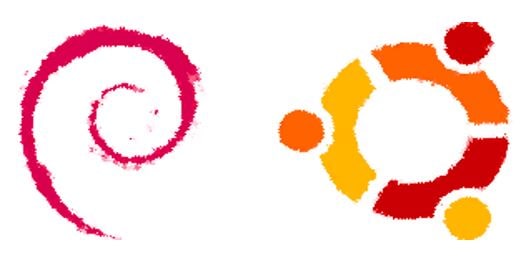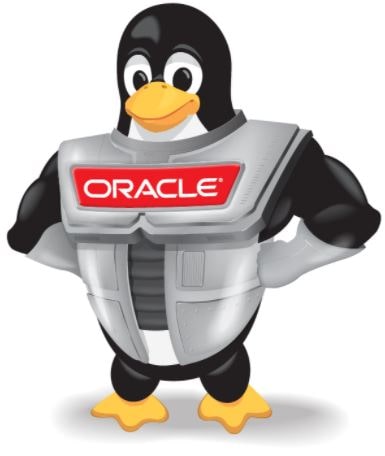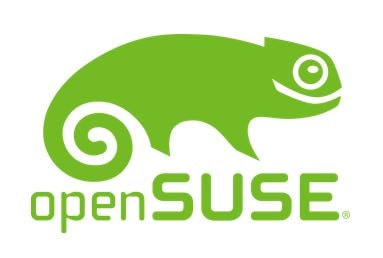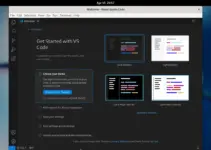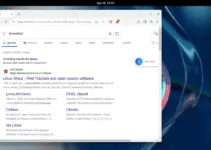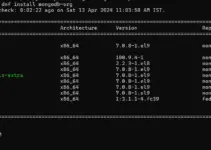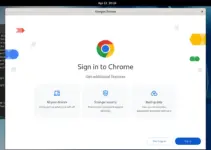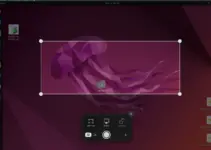Red Hat recently announced that CentOS 8 Linux a head-to-head version to Red Hat 8 Enterprise version will no longer be supported and discontinued at the end of 2021. And on its place, the rolling version CentOS Stream as the downstream branch of RHEL, launched in 2019, will continue to find out bugs to make the upstream version more stable and secure.
However, CentOS 7 running servers will not get affected. They will have the updates in parallel to the RHEL 7 life cycle. RHEL 7 will end its last maintenance cycles in 2024.
However, if you are using CentOS 8, then what are the alternatives in 2021? Unfortunately, even though if you find the one then migration of server applications will be another challenge. Yet, here are some options to replace CentOS in 2021.
Top possible Alternatives to CentOS 8 Linux
1. Ubuntu / Debian
Of course, whenever we talk about server operating system alternatives to replace CentOS, Ubuntu LTS versions will be the first option. Moreover, the usage and handling of Ubuntu OS are much easier than CentOS, at least to me. The APT package manager installs packages in quite a fast manner.
On the other side, Ubuntu has a vast community with both online tutorials and guides, with the help of which the users on their own can solve various problems and hurdles while setting up a server-based application on Ubuntu or Debian.
The current long-term supported version from Ubuntu is 20.04 LTS Focal fossa that will be supported by the developers till 2025 under public support and if you want to extend it further to 2030, then a paid option is available.
Ubuntu releases one LTS version every two years while the standard release is every six months with a support life of nine months.
2. Oracle Linux
The closest alternative option to CentOS 8 Linux with RPM package management is the Oracle Enterprise Linux or OEL. It is also free and open source but for support, the user has to pay, otherwise, the rest of everything is free to use just like CentOS. Oracle Linux is compiled from the source code of RHEL, thus, we can say it is a clone of Red Hat Linux, and also provides early security updates. However, when it comes to cloud computing and VPS services, yet you would not find it there to install your applications, perhaps in the future, you would. Well, on docker we can install Oracle Linux.
The users can freely download Oracle Linux through Oracle’s E-delivery service. See: How to download Oracle Linux
Being a similar base, the users can migrate their applications from CentOS 8 to the latest version on Oracle Linux without much hassle.
3. OpenSUSE
OpenSUSE is a versatile Linux operating system which always been underestimated, one of the reasons is the less wide community as compared to Ubuntu and CentOS, and online tutorials and guides numbers. It is backed by SUSE Software Solutions Germany GmbH. By default, OpenSUSE uses Delta RPMs and ZYpp package management as the command line package manager on SUSE.
It comes with three package management tools ZYpp as a standard command-line tool, YaST is for front-end, and RPM for low-level.
The minor release of OpenmSUSE comes in every 12 months whereas the major release is after approximately 36-48 months, this release cycle is similar to Ubuntu. Checkout the OpenSUSE Wiki
Note: For the below given two alternatives for CentOS 8 Linux, the users have to wait for a few months until their stable versions have not been released.
4. AlmaLinux – CloudLinux OS
Recently, CloudLinux OS which is based on CentOS OS and mostly used by the hosting providers or VPS users has announced :
We plan to release a free, open-sourced, community-driven, 1:1 binary compatible fork of RHEL® 8 (and future releases) in the Q1 of 2021… We will create a separate, totally free OS that is fully binary compatible with RHEL® 8 (and future versions). We will sponsor the development & maintenance of such OS. We will work on establishing a community around the OS, with the governing board from members of the community.
Nevertheless, the users who are using the CloudLinux based on CentOS 8 Linux hosting solution, not need to worry because they are going to have stable and well-tested updates until 2029.
Well, those users are looking for the perfect CentOS alternative they can download this new open-source free Redhat project or see our tutorial on AlmaLinux.
5. Rocky Linux
Immediately after the RedHat announcement of ditching the CentOS 8 LTS version, a piece of news brimmed that the co-founder of CentOS, Gregory Kurtzer will come up with another Linux fork based on RHEL packages called “Rocky Linux” just like he did with CentOS. I hope this time he would not sell the same to RedHat or IBM like earlier.
An official Rocky Linux domain has already been lived and also the GitHub page.
6. VzLinux
VzLinux was used by Virtuozzo only in-house as a guest operating system for containers and virtual machines. Thus, as it was not distributed from outside doors, hence that’s why we never heard about VzLinux. It is also a RedHat-based Linux like Alma and Rocky Linux.
VzLinux is a free multipurpose distribution optimized to run on bare metal servers, virtual machines, or containers. It is designed to support intensive business-grade applications and workloads. A distribution for which Virtuozzo has already prepared the migration process from CentOS “without downtime“, and which it boasts of its speed of update concerning RHEL and in comparison with CentOS.
Those who are interested to try out VzLinux ISO can visit the official download page or repo of VzLinux provided by Virtuozzo.
7. Springdale Linux
Springdale Linux which was earlier known as PUIAS Linux is another Linux operating system. It is built from the source packages available for Red Hat Enterprise Linux. Apart from the official upstream packages this also offers several other repositories for add-on packages. The distribution is maintained by the Institute for Advanced Study and Princeton University in the USA.
However, you would not find it on hosting or cloud services, but being an administrator you can try it on your server or desktop. Well, updates will not be a problem just like CentOS it also depends on its upstream RHEL Linux. The thing to be noted is that this project is older than CentOS.
Closing thoughts
If you are using Amazon Cloud then Amazon Linux is there, whereas GCP offers all the major options. On the other hand, CentOS 7 is not going anywhere until 2024, so no need to haste to find and switch to CentOS alternatives, especially for servers. And of course, in 4 years we will have more solid and stable options to replace CentOS 7 as well, till now, the users using CentOS 6, still, can ponder to adopt Ubuntu, Debian, Oracle, or OpenSUSE. Nevertheless, the Desktop users who have nothing much at stake can simply migrate the CentOS 8 Linux repository to the CentOS stream for regular updates.
Other Articles:
- 5 Best Linux Distros for Beginners in 2021 to use on laptop or PC
- How to install Virtualbox on OpenSUSE Tumbleweed & Leap
- How to install WordPress on Oracle Cloud for free
